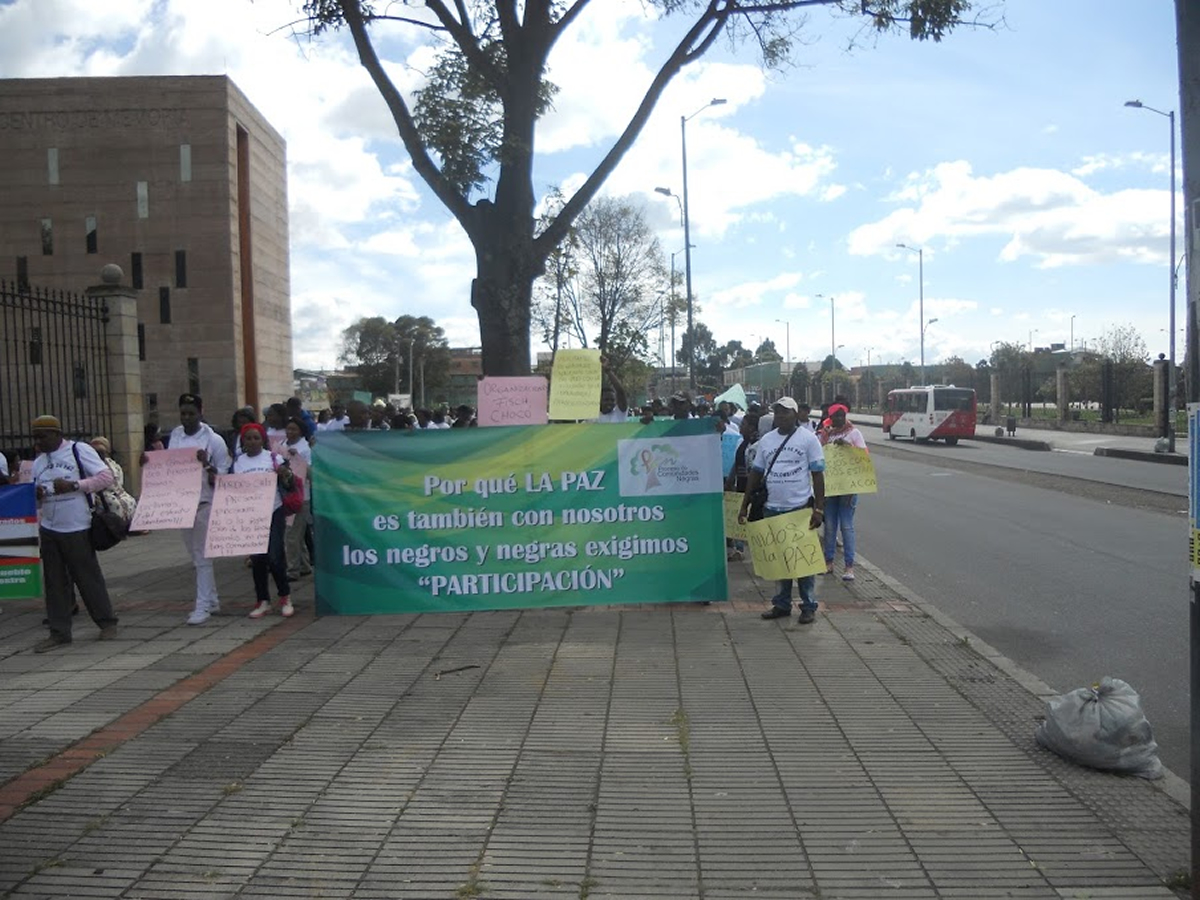Latest UN Report Reiterates the Benefits of the Participation of Ethnic Communities in the Peace Process
Bogota, March 23, 2016. Led by its Colombian Representative, Todd Howland, the Office of the UN High Commissioner for Human Rights held a press conference to present its 2015 Annual Report. Ayda Quilcue from the Cauca Regional Indigenous Council and Francia Marquez from the Ethnic Commission for Peace and the Black Women’s Mobilization to Care […]

Bogota, March 23, 2016. Led by its Colombian Representative, Todd Howland, the Office of the UN High Commissioner for Human Rights held a press conference to present its 2015 Annual Report. Ayda Quilcue from the Cauca Regional Indigenous Council and Francia Marquez from the Ethnic Commission for Peace and the Black Women’s Mobilization to Care for Life and Ancestral Land in the Cauca Valley were invited to attend the event and offer an appraisal of the human rights situation in their communities.
The conditions of the ethnic communities are a central topic of the analysis and recommendations of the report. Even in the general context of a de-escalation of the armed conflict, the systematic violation of these communities’ human rights has continued. Even more worrisome is the report’s conclusions that project a high level of vulnerability for ethnic communities in the post-accord scenario. The cessation of military confrontation in regions populated by ethnic communities will not necessarily end ongoing conflicts for territorial control involving armed groups associated with drug trafficking and illegal mining. Moreover, the accords reached to date, that will significantly affect these regions have not adequately incorporated specific measures to safeguard ethnic communities’ constitutional rights.
Regarding this possible post-accord scenario, the UN High Commissioner for Human Rights made the following recommendation:
To urge the parties in Havana to take the opportunity to converse with indigenous peoples and Afro-Colombians in order to assure that the peace accords and their implementation maximize the enjoyment of their collective and individual rights. The final accord should include specific reference to the commitment of the negotiating parties to guarantee respect for the internationally and constitutionally recognized rights of indigenous peoples and Afro-Colombians in all aspects of its implementation.
The analysis and recommendations by the United Nations add to those already made by the UN Committee for the Elimination of Racial Discrimination, which have reflected the autonomous proposals presented by organizations associated with the Ethnic Commission for Peace and Territorial Rights. The Institute on Race, Equality and Human Rights joins the voices of these organizations in proclaiming it necessary and urgent that the Colombian government and the FARC guerillas welcome a delegation of the Commission’s representatives.

